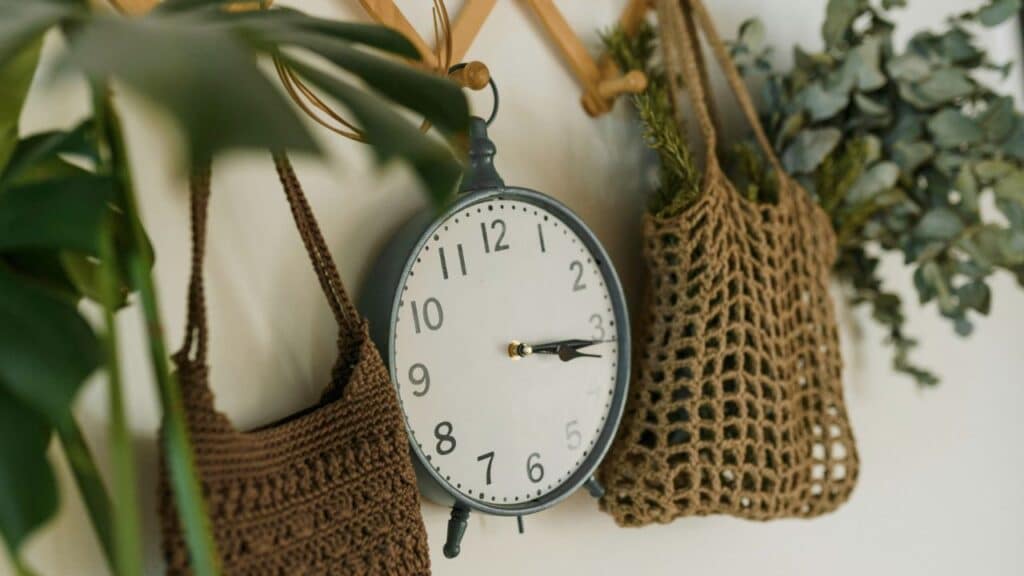Vastu tips clock placement in house: In the realm of Vastu Shastra, the ancient Indian science of architecture and design, even the smallest details can have a significant impact on the energy flow within a home. One such detail that often goes overlooked is the placement of wall clocks. While these timekeeping devices may seem innocuous, their position can greatly influence the harmony and prosperity of your living space. This article delves into the crucial Vastu guidelines for wall clock placement, with a particular focus on the directions to avoid.
The Power of Clock Placement in Vastu Shastra
Vastu Shastra emphasizes the importance of aligning our living spaces with the natural forces and cosmic energies that surround us. Wall clocks, as symbols of time and progress, play a vital role in this alignment. The direction in which a clock is placed can either enhance positive energy flow or disrupt it, potentially leading to negative consequences for the inhabitants.
Favorable Directions for Wall Clocks
Before we explore the directions to avoid, it’s essential to understand the optimal placements for wall clocks according to Vastu principles:
- North Direction: Considered the most auspicious direction for wall clocks. The north is associated with Kubera, the god of wealth, making it an ideal location to attract prosperity and financial stability.
- East Direction: Another favorable placement, associated with new beginnings and good health. Clocks in this direction can bring positive energy and good fortune to your home.
- West Direction: While not as favorable as north or east, the west direction is acceptable for clock placement if other options are not available.
The Dangerous Direction: South
Now, let’s address the critical issue at hand – the direction that could potentially “ruin” your home’s energy if you hang a clock there by mistake.
Why Hanging a Clock in the South is Problematic
According to Vastu Shastra, the southern direction is strongly discouraged for wall clock placement. Here’s why:
- Association with Yama: The south direction is ruled by Yama, the god of death in Hindu mythology. Placing a clock here is believed to invite negative energies associated with loss and decay.
- Financial Instability: A clock in the south can lead to unwanted expenses and financial problems.
- Health Issues: It’s thought that hanging a clock in the south may negatively impact the health of family members.
- Career Obstacles: Problems in the professional sphere may arise due to this inauspicious placement.
- Stagnation: The southern placement indicates a lack of progress and growth in various aspects of life.
Other Directions to Avoid
While the south is the most problematic, there are other directions that Vastu advises against for wall clock placement:
- Southwest: Considered highly inauspicious, this direction can lead to stagnation and lack of progress in personal and professional growth.
- Southeast: This direction is also unfavorable and can intensify stress and conflict within the household.
The Impact of Incorrect Clock Placement
To understand the potential consequences of hanging a clock in an unfavorable direction, let’s look at some hypothetical scenarios:
| Incorrect Placement | Potential Consequences |
|---|---|
| South Wall | Financial losses, health issues, career setbacks |
| Southwest Corner | Stagnation in personal growth, missed opportunities |
| Southeast Area | Increased family conflicts, stress, and tension |
Vastu-Compliant Clock Placement Tips
To ensure your wall clock enhances rather than disrupts your home’s energy, follow these Vastu-approved guidelines:
- Choose the Right Direction: Prioritize north or east walls for clock placement.
- Proper Height: Hang the clock at eye level or slightly above, ensuring it’s easily visible.
- Avoid Entrance Areas: Don’t place clocks above the main door or in the home’s entrance.
- Keep It Functional: Ensure the clock is always in working condition and set to the correct time.
- Shape Matters: Opt for circular or square-shaped clocks, as they are considered more harmonious in Vastu Shastra.
The Science Behind Vastu Clock Placement
While Vastu Shastra is often viewed through a spiritual lens, there are scientific principles that support some of its recommendations:
- Magnetic Fields: The Earth’s magnetic field is stronger in the north-south direction. Placing a clock in the north aligns with this natural magnetic flow.
- Sunlight Exposure: East-facing clocks benefit from morning sunlight, which can have positive psychological effects on inhabitants.
- Circadian Rhythms: Proper clock placement can help maintain healthy circadian rhythms by providing consistent time cues throughout the day.
In conclusion, the placement of wall clocks in your home is more than just a decorative choice – it’s a decision that can significantly impact the energy flow and overall well-being of your living space. By avoiding the southern direction and other unfavorable placements, you can prevent potential disruptions to your home’s harmony. Instead, opt for Vastu-recommended directions like north and east to invite prosperity, good health, and positive energy into your life.Remember, while Vastu Shastra offers valuable guidelines, it’s essential to create a living space that feels comfortable and functional for you and your family. Use these principles as a guide, but also trust your intuition and personal preferences when decorating your home. By striking a balance between ancient wisdom and modern living, you can create a harmonious environment that supports your well-being and success.

